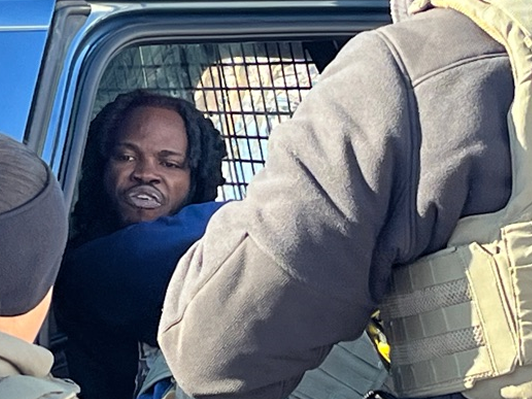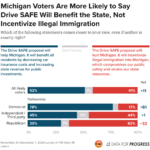
A Critical Analysis of Immigration Enforcement: The Wisteguens Jean Quely Charles Case as a Point of Reference
The recent arrest of Haitian national Wisteguens Jean Quely Charles, a resident of Massachusetts with 17 criminal convictions, by the Immigration and Customs Enforcement (ICE) has reignited the debate on immigrant law enforcement policies. Charles, who is allegedly a member of a violent Haitian gang, had an array of charges laid against him, including drug and weapon offenses.
Understanding the Backdrop of Charles’ Case: Immigration and Crime
Charles’ case prompts a deeper look into the tangled web of crime and immigration policy. As someone who entered the U.S. in July 2013, Charles’s legal entry terms violation coupled with his serious criminal charges have exposed the vulnerabilities in the immigration enforcement system. A key concern here is the efficacy of ICE’s Enforcement and Removal Operations (ERO) Boston; a key component of immigration management tasked with arresting, detaining, and removing individuals who violate immigration laws.
The Legalities of Detention and Imprisonment in the Immigration Context
Charles’ encounter with the ICE in April 2023 resulted in an immigration detainer issued against him, housed at the Norfolk House of Correction. Despite this, he was later released without the detainer being honored, a move which has raised serious questions about the integration of immigrant law enforcement with the wider criminal justice system. Respect for due process rights and the lengths of confinement, both central elements in the administration of justice, brings with it considerable tensions and implications for law enforcement agencies like the ICE.
ICE’s Role and the Interplay with Local Enforcement Agencies
Notably, the Norfolk County Sheriff’s Office issued a statement highlighting that the responsibility was up to ICE to take Charles into custody. ICE’s inability to make a pickup, despite clear knowledge of the criminal background, exposes a striking void in the immigration law enforcement apparatus. The handoff between local county enforcement and ICE is indeed a critical intersection where the law enforcement network must tighten its grip to ensure public safety.
The Ethicalities of Immigration Enforcement
Underlying this complex legal arena, there is also an ethical quandary: what to do with individuals who have violated their terms of lawful admission to the country? While the law is undoubtedly on the side of those who demand accountability and sanction, the human aspect must also be brought to bear. In this vein, the actions of the Norfolk County Sheriff’s office to uphold due process rights even in the face of potential public safety threats is commendable, yet highly delicate.
Charles’ Future and the Broader Implications: The Role of Immigration Judge
At this point in the narrative, Charles stands noticed to appear before an immigration judge while remaining in ICE custody. His case represents the multiple fractures in our immigration law enforcement system and serves as a mirror to the larger structural challenges we face as a nation. Enforcement deficiencies, poor communication and coordination between counterparts, and the balance of rights versus enforcement are all critical issues that must be addressed in order to bring lasting changes to our immigration law enforcement system.
Conclusion: Strengthening our Immigration Law Enforcement
The Charles’ episode teaches us that there is urgent need for closer coordination between local and federal agencies, along with greater transparency and accountability to the communities we serve. To keep our neighborhoods safe, key measures need to be taken; from streamlining processes to improve the execution of enforcement activities, to building on our capacity to deal with illegal immigrants who commit crimes, the pathway ahead demands responsible yet compassionate action.
Originally Post From https://www.masslive.com/news/2025/01/haitian-national-with-17-convictions-in-mass-arrested-by-ice-in-boston.html


